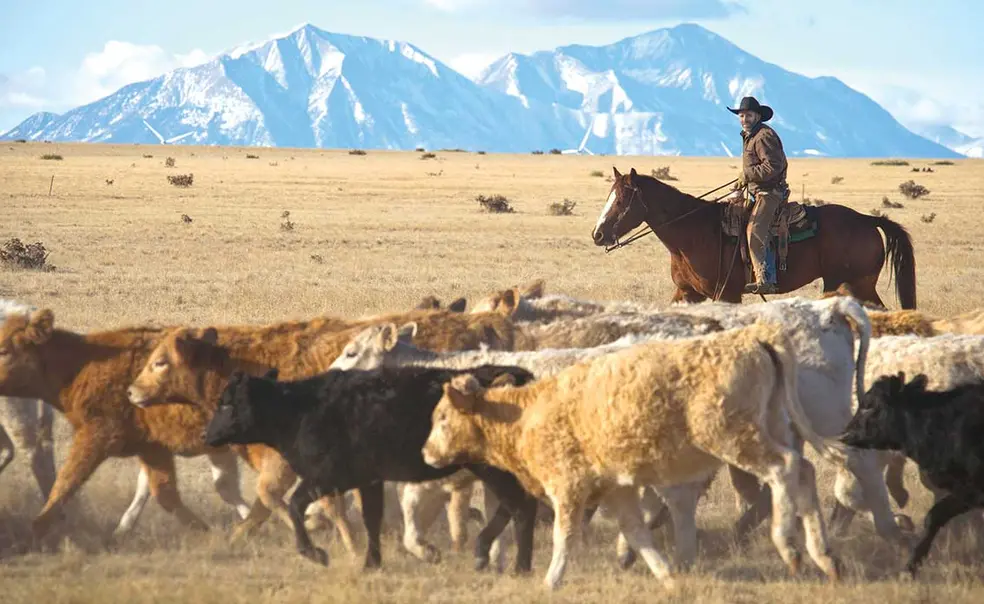Rancher Grady Grissom ’84 Is at Home on the Range
When Grady Grissom ’84 graduated from Stanford with a master’s degree in geology in 1991, he expected to pursue a career in mining, with the dream of someday retiring to a ranch. But when his Princeton roommate Rob Lovelace ’84 decided to buy a ranch in southeast Colorado, Grissom’s dream came true much sooner than he expected.
Throughout his childhood and shortly after he graduated from Princeton, Grissom worked on a ranch. But even that experience didn’t fully prepare him for managing the 14,000 acres of Rancho Largo, which he and Lovelace opened in 1994. At first, Grissom didn’t realize that running a large amount of cattle would deplete the land and make it less profitable in the long run.
“In reality that was the biggest thing I learned in the first four or five years — there’s only so many cattle the ecosystem can handle,” he says. “It turns out that animal performance limits profitability. Cattle compete for limited forage, so you’re forced to have a moderate stocking rate ecologically, and that keeps the land pretty healthy.”
Today, he raises far fewer cattle in order to ensure the health of his business — and the land. Grissom now uses a rotational grazing system, leaving pastures empty of cattle for up to two years at a time to allow the land to recover. Over time, he’s come to view the ecosystem as a partner.
“When you struggle, and you make mistakes … the land tells you, ‘Hey that was stupid,’” he says. “Over time I guess it’s like a marriage — you realize you’re not going to change the land — you’re going to work with it and view it as a partner.”
Grissom even created a section of his website called “Partners” featuring some of the plants, animals, and people that make Rancho Largo’s land special.
“That transformation of viewing everything as my partner is something I never expected, but now it’s one of the neatest, most wonderful things I’ve done in the last 25 years,” Grissom says.
One of his most interesting partners is the whiptail lizard, a female-only species that makes for good conversation among visitors to the ranch. According to Grissom, each offspring is a genetic clone of its mother, so the whiptail lizard remains rare because it can’t adapt to changing environments.
“We do some ranch tours and stuff, and the women on the ranch love it when I say that males are sort of a waste of resources because we don’t have babies. All we do is eat,” he jokes.
As Grissom’s view of the land evolved, so has Rancho Largo’s business model. For years, they’ve operated as a commodity business that sells live, roughly 200-day-old cattle to larger producers. Lovelace wanted to sell beef directly, so they opened a custom beef business they hope will soon eclipse the ranch’s commodity sales wing. Throughout Rancho Largo’s evolution, Grissom has remained grateful for the partnership he built with Lovelace during their time at Princeton.
“Our partnership — that’s something very special to me,” he says. “From Rob’s perspective, he would not be in the ranching business if it wasn’t my dream. It’s been just a fantastic partnership, and for two close friends to go into business together and make it work for 25 years I think is really cool.”










No responses yet